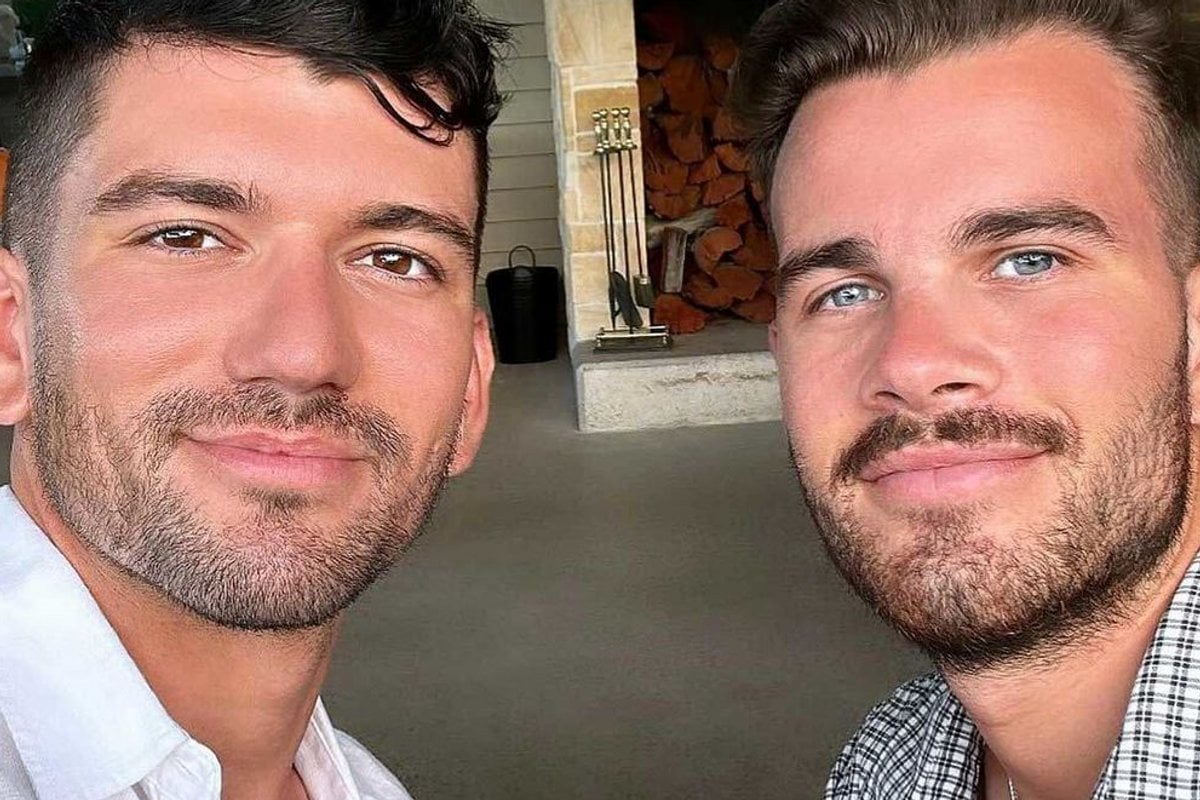
This story discusses domestic violence.
'A crime of passion'.
That’s how head of NSW Police Commissioner Karen Webb described the double murder of 26-year-old Jesse Baird and his partner, 29-year-old Luke Davies.
The couple was allegedly murdered by serving police officer, Beau Lamarre-Condon, who reportedly briefly dated Baird for a short period time last year. Human remains have now been found in the search for Baird and Davies' bodies. They were reportedly found near Bungonia, a small town in the Southern Tablelands Goulburn region in New South Wales.
The NSW Police Commissioner's comments have sparked an intense backlash from anti-domestic violence advocates who object to the use of language which in effect, romanitises and justifies domestic violence.
Watch: Can You Spot The Red Flags Of Domestic Violence? Post continues after the video.
"A loving couple in Jesse Baird and Luke Davies have had their lives stolen from them, their bodies yet to be located," advocate, Tarang Chawla, whose sister was murdered by her partner, posted to his Instagram page.
"And the man alleged to be responsible for ending their lives is a currently servicing police officer whose actions have been reduced to a crime of passion, instead of a vengeful act of power, control and entitlement over others,"

Top Comments